PhD Student Program
The Soil CRC PhD program is building capability in the future of Australia’s soil research.
A PhD through the Soil CRC provides a rewarding opportunity to contribute to the health, sustainability and profitability of soils in Australia, and the communities that depend upon them.
Students who complete their PhD through the Soil CRC are part of a cohort that are supported with training, information, resources and networking opportunities.
PhD Student Profiles
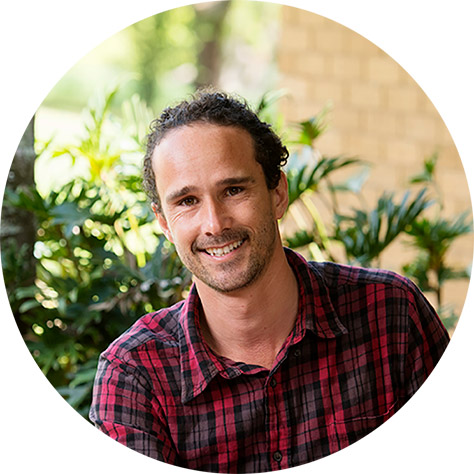
Mathew Alexanderson
Southern Cross University
PhD Title: “Regenerative Agriculture: exploring the boundaries.”
My research explores regenerative agriculture as an alternative approach to conventional farming. It looks to synthesise the principles, practices and agricultural system overlaps, while investigating the evolving understanding of knowledge between farmers and industry professionals.

Maryam Barati
Southern Cross University
PhD Title: “Improving phosphorus acquisition in grain crops with organic amendments.”
My study will investigate if organic phosphorus sources can deliver superior use efficiency when compared to ‘traditional’ inorganic phosphorous sources.

Cameron Copeland
Southern Cross University
PhD Title: “Understanding the Mechanisms of Soil Microbial Function and their Role in Cropping Systems.”
My PhD project uses soil metabolomics and DNA profiling to understand how a community of microbes is affected following inoculation into a different soil type. Changes to microbial diversity profiles and the corresponding metabolites will clarify the functionality of a microbial community following inoculation and give a better understanding of the efficacy of potential microbial inoculants.
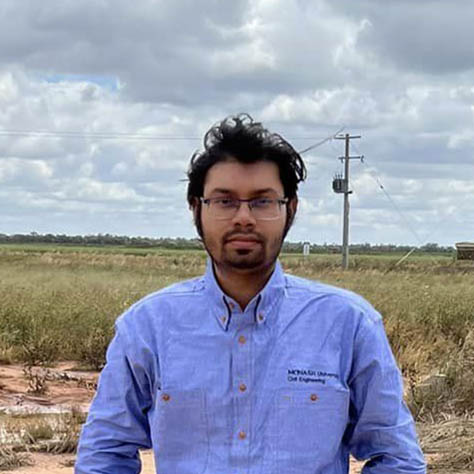
Dristi Datta
Charles Sturt University
PhD Title: “Developing an Imagery-Based Decision Support System for Soil Assessment Using Remote Sensing.”

Suman Gajurel
University of Southern Queensland
PhD Title: “Modelling and diagnosis of multiple soil constraints across Australian farming systems.”

Louise Hunt
Southern Cross University
PhD Title: “Exploring the role of intuition in farmers’ decision-making about soil.”
Literature shows that unconscious mental processes dominate decision-making. Of these processes, intuition is noted as being fast; familiar; easy and able to draw conclusions for complex problems. This PhD endeavours to bridge the gap of knowledge about the role of intuition in farmers’ decision-making about soil health.

Chenting Jiang
University of Tasmania
PhD Title: “Machine learning-based prediction system for soil water retention function.”
My research aims to develop innovative approaches to predict soil water retention function using machine learning and data assimilation algorithms with real-world dynamic soil datasets, resulting in an automatic learning and prediction system.

Phil Kay
University of Tasmania
PhD Title: “Microbial changes associated with improved or reduced soil health.”
This project is looking to characterise the taxonomic diversity of soil microbiota, the abundance of particular microbial groups and the level of enzyme activity in the soils. To distinguish between soil health and soil fertility, the impact of imposed stresses (drought, waterlogging) on soil microbiota will be assessed and the ability of the microbiota to recover following the removal of the stresses will also be examined.

Salini Khuraijam
The University of Newcastle
PhD Title: “Exploring Economic Aspects of Adopting Soil Amendments for Ameliorating Soil Constraints in Australia.”
Soil amendments are commonly promoted as a sustainable solution to improving soil health. However, despite numerous scientific evidence of their benefits, there is a lack of economic analysis of soil amendments. My project aims to fill in the socio-economic knowledge gaps in adopting soil amendments to help overcome the barriers and challenges faced in the adoption process.
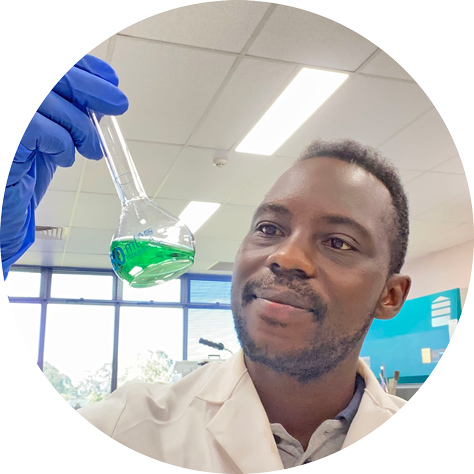
Henry Luutu
Southern Cross University
PhD Title: “Phytotoxicity and ecotoxicology of hydrothermal carbonisation – treated wastes.”
My PhD investigates the effect of soil-applied hydrothermal carbonised wastes on plants and soil organisms. Hydrothermal carbonisation converts high moisture biomass into hydrochar, a carbon material with substantially lower energy inputs compared to pyrolysis.
I am studying the effect and mechanism of how hydrochar affects plants and soil organisms. This study aims at informing decisions on sustainable use of hydrochar.

Naveeda Majid
The University of Newcastle
PhD Title: “Non-wetting soils: the causes and mechanisms of non-wetting and remediation.”
This study will focus on extent and severity of non-wetting in Australia and globally. The early human settlement and various vegetation patterns and types had an influence on the formation of non-wetting soils. Characterisation of non-wetting soils on mineralogical, physical, chemical, and biological parameters will be performed to find out sustainable remediation approach (microbial base) to treat non-wettability of soils.
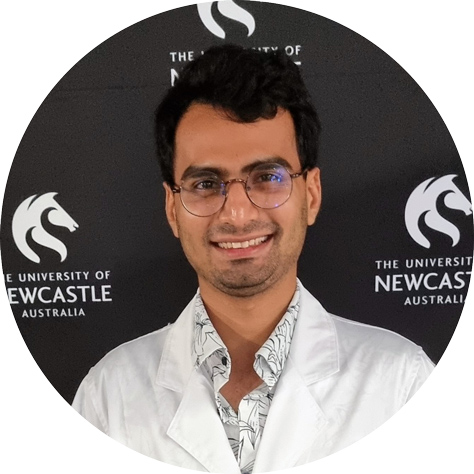
Bhavya Mod
The University of Newcastle
PhD Title: “Carbon storage in soil using agro industry biowaste.”
The primary objective of my PhD work is to enhance the organic carbon content in sugarcane cultivated soils of North Queensland. I will make use of waste products and industrial effluents produced by the sugar industry to develop a sustainable fertiliser. This soil fertiliser or conditioner will be customisable to meet the needs of the farmer. Apart from building soil organic carbon this will also be a useful tool for waste management and a potential circular economy model.
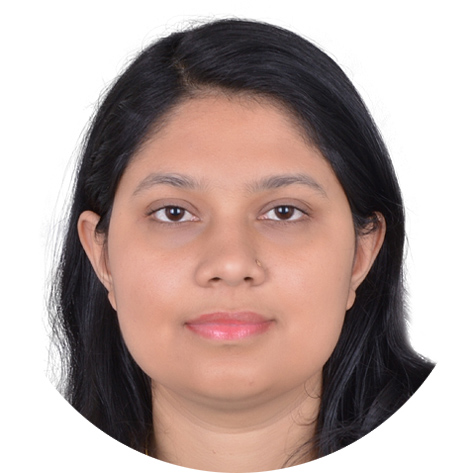
Tania Sabnam
Binta Monir
Murdoch University
PhD Title: “Stability of soil carbon under different amendments in sandy soils.”
My PhD project will focus on determining the dynamics of carbon compounds in amended soils to identify if particular classes of chemical species are preferentially stabilised by different amendments. This investigation will aid in identifying amendments that can be used to improve soil fertility, health and soil carbon in sandy soils levels over the long term.

Sadia Sabrin Nodi
Charles Sturt University
PhD Title: “Development of a grower focused mobile app for estimating, analysis and recording soil properties.”
The objective of this research project is to investigate various regression and machine learning algorithms to estimate soil properties, and to design and develop a smartphone app for estimating soil properties such as Munsell colour, carbon and moisture from images captured by smartphones. This application would be well suited to assist Australian farmers in automating their soil profiling to improve agricultural efficiency and yield.

James O’Connor
The University of Western Australia
PhD Title: “Food waste valorisation products as a nutrient source and carbon amendments.”
The aim of this research is to examine food waste valorisation products (dehydrated products, composted products, biochars, hydrolysates and anaerobic digestates). This research will evaluate the different products as a nutrient source and carbon amendment to improve soil health, soil carbon content, soil fertility and crop productivity.
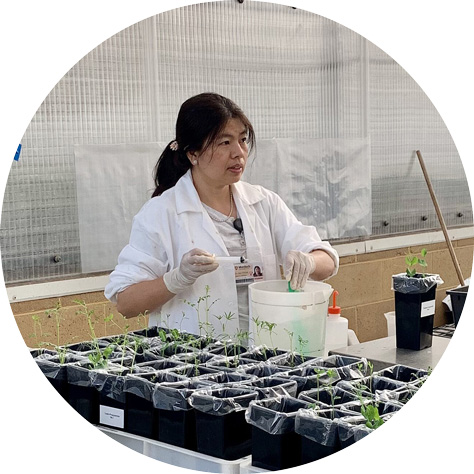
Win Win Pyone
Murdoch University
PhD Title: “Managing Phytotoxicity of Soil Borne Herbicide Residues in Grain Cropping System.”
This study aims to explore the thresholds level of soil-borne herbicide residues that cause damage to grain crops from herbicide carryover in Australian cropping systems. The research will focus on up to six key herbicides used in WA. An exploratory study of herbicide residues will also be conducted in the central dry zone of Myanmar.
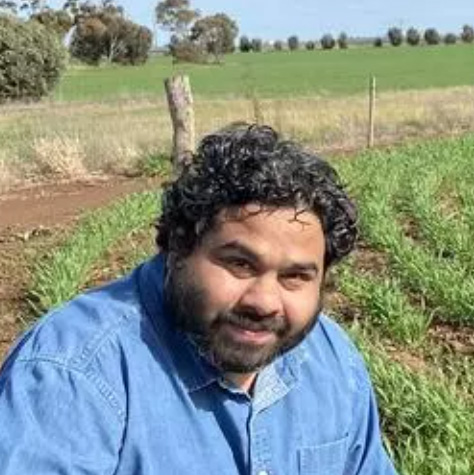
Arif Rahman
Federation University Australia
PhD Title: “Data-driven methods for soil organic carbon estimation.”
My PhD research focuses on developing machine learning models to estimate soil organic carbon content that are cost-effective, rapid, and non-invasive.

Rahat Shabir
Griffith University
PhD Title: “Developing effective biochar and biopolymer material as an alternative microbial carrier.”
This study will employ a suite of advanced analytical approaches to evaluate the suitability of locally available, low cost, biochar produced from different feedstock and pyrolysis conditions, and emerging biopolymers as alternative carriers for effectively delivering rhizobia.
This project will provide new knowledge on cost-effective alternative carriers for the formulation of rhizobial inoculants to improve legume nitrogen-fixation and soil productivity in Australian farming systems.

Prasanthi Sooriyakumar
University of Western Australia
PhD Title: “Liming values of biochar in acidic sandy soils.”
Rainfall and leaching, acidic parent material, organic matter decay, harvest of high yielding crops and nitrification of ammonium are the main causes of soil acidification. My research aims to synthesis biochar-based soil amendments to improve soil pH and thereby improve soil health and productivity.

Maria Then
Murdoch University
PhD Title: “Proximal sensing in soil water repellency management.”
My research is focused on soil water repellency and the use of soil sensors to better understand and manage this issue.
I seek to understand how these soil sensors can assess optimal and targeted remediation strategies in sandy soils under dryland cropping systems of Western Australia.

Melissa Wales
Charles Sturt University
PhD Title: “A Study of Social Norms and Soil Management.”
My research will seek to identify and understand the social norms operating within Australian farming communities, and how they may be influencing perceptions of “good” and “bad” farming practices today, and in turn how this influences management and policy decisions.

Peter Weir
Federation University Australia
PhD Title: “In-paddock variability of plant available water.”
The aim of this PhD project is to enable the high-resolution estimation and forecasting of plant available water, within and across individual paddocks at multiple depths in the soil profile.

Linda Wirf
Charles Sturt University
PhD Title: “Beyond adoption: gendered knowledges in agricultural practice change in Australia.”
This qualitative research explored gender in agriculture by asking the question ‘How can women’s knowledges contribute to agricultural practice change in Australia?’ The aim was to provide a deeper understanding of the ways that women and men farmers view agriculture.

Hanlu Zhang
University of Southern Queensland
PhD Title: “Soil-moisture profile dynamics affected by cover crop: Effect of changes in soil biology and structure.”
My PhD study aims to investigate the impact of cover crop on soil water, yield, and explore mechanisms and trade-offs between the changes in soil water, soil organic carbon and arbuscular mycorrhizal fungi population that affect soil health and productivity.

